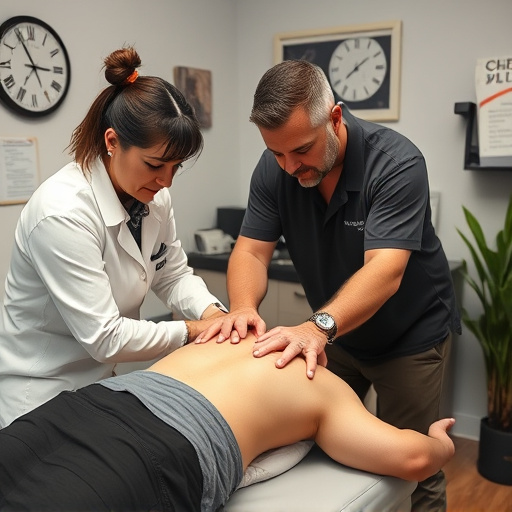Choose an accident injury specialist with advanced sports medicine training and proven experience in successful treatment of various injuries, especially musculoskeletal issues. Prioritize communication, transparency, accessibility, and flexible scheduling. Research their track record and patient reviews for positive outcomes and effective treatments, avoiding specialists with negative feedback.
Choosing an accident injury specialist is a crucial decision. To ensure optimal care, watch out for red flags like inadequate qualifications or lack of specialized experience. Effective communication and accessibility are key; you should expect prompt, transparent interactions. Research their track record and patient reviews to gauge success rates and the quality of care provided. Always verify certifications and stay informed about their medical history. These steps will help you select a reputable accident injury specialist for comprehensive support.
- Qualifications and Expertise: Verify Their Training and Experience
- Communication and Accessibility: Ensure Prompt, Transparent Interactions
- Track Record and Reviews: Research Success Rates and Patient Feedback
Qualifications and Expertise: Verify Their Training and Experience

When seeking an accident injury specialist, it’s paramount to scrutinize their qualifications and expertise before making a decision. Start by verifying their training; reputable specialists should have completed advanced courses in sports medicine, orthopedics, or related fields. This ensures they possess a deep understanding of various injuries, including sports-related ones, and can offer effective treatment plans.
Experience is another critical factor. Look for providers who specialize in sports injury treatment and recovery, as this signifies a commitment to helping athletes and active individuals regain mobility and return to their respective activities safely. Their experience will be evident through successful case studies, positive patient reviews, and a proven track record of improving mobility and enhancing athletic performance.
Communication and Accessibility: Ensure Prompt, Transparent Interactions

Effective communication is a cornerstone when choosing an accident injury specialist. Look for providers who offer prompt responses to your inquiries, whether it’s through phone calls, emails, or online messaging. Transparent conversations about your injuries, treatment options, and potential outcomes are essential. A good specialist should explain procedures clearly, answer your questions honestly, and ensure you understand every step of the healing process.
Consider the accessibility of scheduling appointments and receiving care. Convenient office hours, same-day appointments where possible, and flexible payment options are signs of a provider who values their patients’ time and well-being. Remember, you’re seeking help for accident-related injuries, so efficient communication and accessibility can significantly impact your recovery, offering much-needed headache relief or whiplash treatment.
Track Record and Reviews: Research Success Rates and Patient Feedback

When selecting an accident injury specialist, one of the most crucial aspects to examine is their track record and patient reviews. A reputable provider should have a strong history of successful outcomes for various types of injuries, particularly musculoskeletal injuries. Look for evidence of effective treatments that address conditions like sciatica relief and other personal injury-related chiropractic needs.
Patient feedback offers valuable insights into the specialist’s care and service quality. Positive testimonials highlight their ability to connect with patients, provide personalized solutions, and achieve desired outcomes. Conversely, negative reviews might indicate issues such as poor communication, inadequate treatment plans, or lack of empathy. Therefore, it’s essential to research and consider both success rates and patient feedback before making a decision for your accident-related healthcare needs.
When selecting an accident injury specialist, look for providers who prioritize clear communication, accessibility, and a proven track record. Verifying qualifications, ensuring transparency, and considering patient reviews are essential steps in making an informed decision. These factors contribute to effective treatment and ensure you receive the best care possible during your recovery journey.














